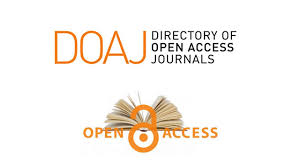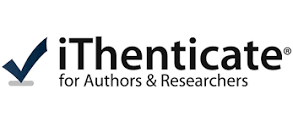Human and Animal Rights
The manuscript should contain a statement that the work has been approved by the appropriate ethical committees related to the institution(s) in which it was performed and that subjects gave informed consent to the work (consent from patients). Studies involving experiments with animals must state that their care was under institutional guidelines.
All research conducted must adhere to appropriate ethical standards. In cases where there is uncertainty regarding the ethical framework followed, the Editors may reject the manuscript and/or contact the author(s)' ethics committee for further clarification. Even if approval from an ethics committee has been obtained, the manuscript may still be rejected on ethical grounds.
For research involving human subjects, human material, or human data, the study must have been conducted under the Declaration of Helsinki, click here, and have received approval from an appropriate ethics committee. Submission of the study must be accompanied by documentation of ethics/bioethics committee approval.
In instances where authors report the use of a new procedure or tool in a clinical setting, such as a technical advance or case report, they must provide a clear justification within the manuscript for why the new procedure or tool was deemed more suitable than standard clinical practice to address the patient's clinical needs. This justification may not be required if the new procedure is already approved for clinical use at the authors' institution.
Authors undertaking experimental use of a novel procedure or tool, where a clear clinical advantage based on clinical need was not apparent before treatment, are expected to have obtained ethics committee approval and informed patient consent.
These requirements ensure that research involving human and animal subjects is conducted ethically and with proper consideration for the well-being and rights of the individuals involved. Human and Animal Rights form statement click here
Informed Consent
Any details that could identify individuals or include images related to participants are strictly prohibited.
Experimental research involving vertebrates or regulated invertebrates must adhere to institutional, national, or international guidelines and receive approval from an appropriate ethics committee. The manuscript should include a statement indicating compliance with relevant guidelines and/or ethical approval, including the name of the ethics committee and reference number, if applicable.
The Editor will consider animal welfare issues and reserves the right to reject a manuscript if the research involves protocols that are inconsistent with widely accepted norms of animal research. In some cases, the Editors may contact the ethics committee for additional information.
For field studies and other non-experimental research involving animals, it is necessary to comply with institutional, national, or international guidelines. If available, the study should have received approval from an appropriate ethics committee. The manuscript should include a statement confirming compliance with relevant guidelines and providing appropriate permissions or licenses.
These measures ensure that research involving human participants and animals is conducted ethically and under established guidelines and regulations.
Vulnerable Populations
For research involving vulnerable populations such as children, individuals with cognitive impairments, institutionalized persons, or those in dependent or coercive relationships—special protections must be in place to safeguard their rights and well-being.
-
Informed consent must be obtained from legally authorized representatives (e.g., parents or guardians), and where appropriate, assent must also be obtained from the participant.
-
Authors must describe in the manuscript how informed consent and assent were obtained and how the study design accounted for the participant’s vulnerability.
-
Ethical approval must explicitly cover these groups, and researchers must demonstrate that the study posed minimal risk and had potential for direct or societal benefit.
Post-Publication Ethical Concerns
The journal follows COPE guidelines in handling ethical issues identified after publication.
-
If concerns arise about the ethical conduct of the research—such as forged consent, lack of ethics approval, or misuse of data—the Editors will initiate an investigation.
-
The authors may be contacted to provide additional documentation (e.g., original consent forms or ethics committee approvals).
-
Depending on the outcome, the journal may issue a correction, expression of concern, or retraction.
-
All investigations will be handled confidentially and fairly, with due process given to the authors and institutions involved.
-
Readers and whistleblowers may report concerns to the Editor-in-Chief or managing editor via the journal’s contact email.
This journal adheres to the principles of the Committee on Publication Ethics (COPE). For more information, visit https://publicationethics.org
Editors are responsible for evaluating all submitted manuscripts in accordance with these principles and have the authority to seek clarification, reject submissions, or take post-publication actions when ethical standards are not met.







